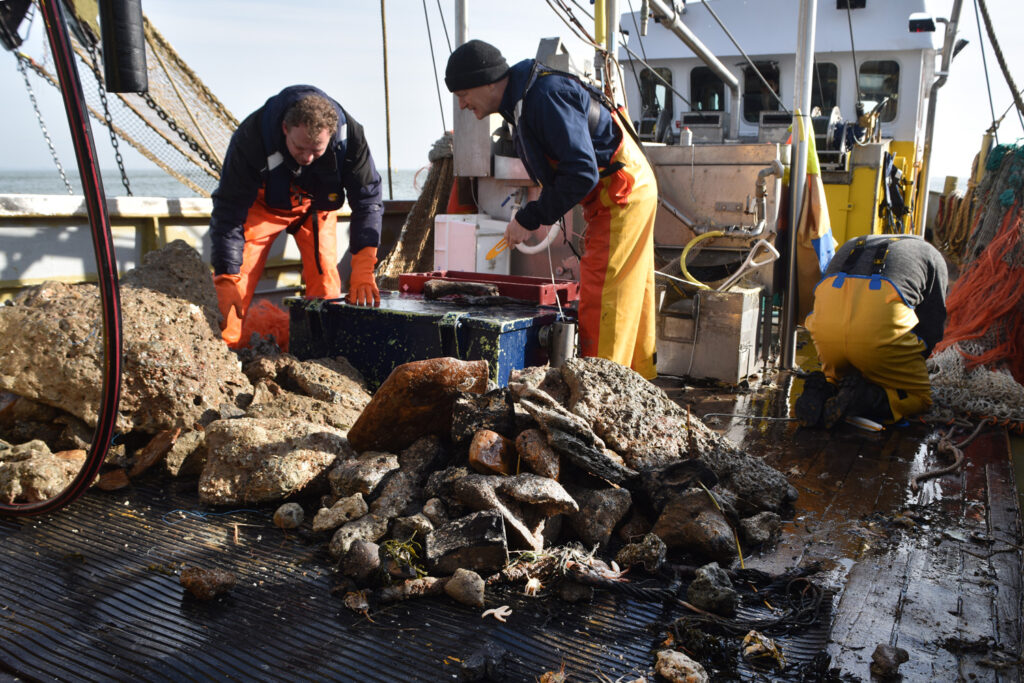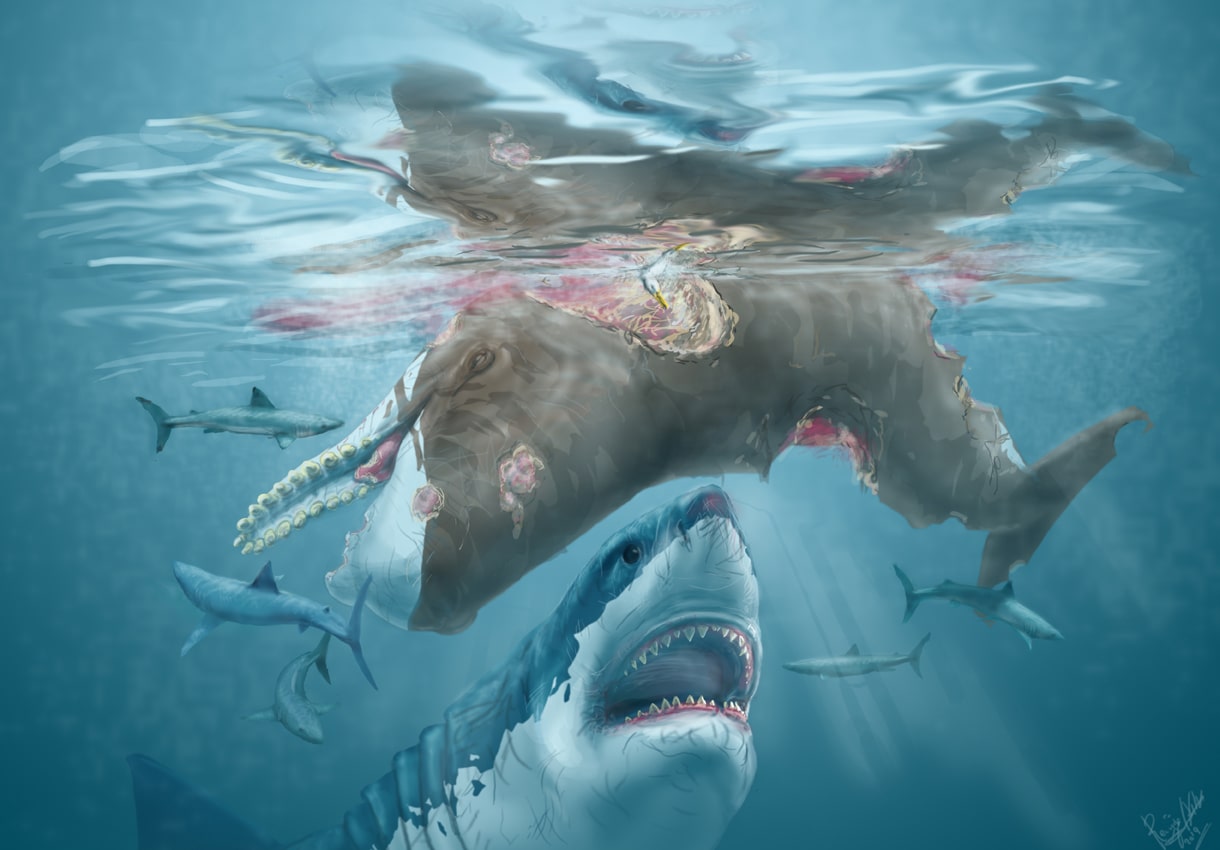
$ USD
-
$ USD
-
€ EUR
-
£ GBP
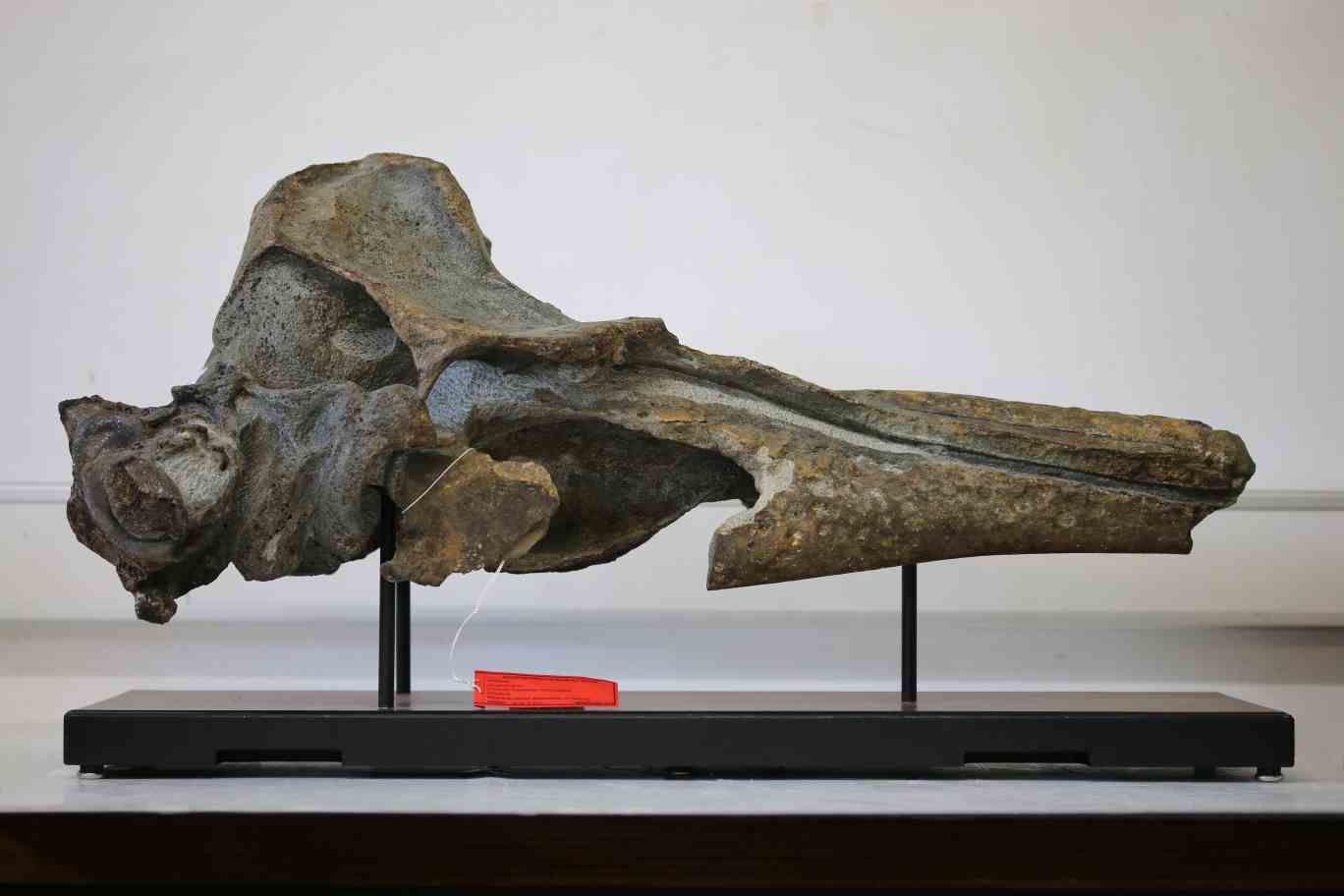
The Westerschelde estuary near the border of the Netherlands and Belgium is known for
its fossil contents since the 17th century. Fossil bones are located at great depth in this busy shipping lane and are therefore very hard to collect and study. In 2013-2018, North Sea Fossisl and the Natural History Museum Rotterdam, working closely with local fishermen, recovered an amazing treasure of 5,000 vertebrate fossils of whales and terrestrial mammals.
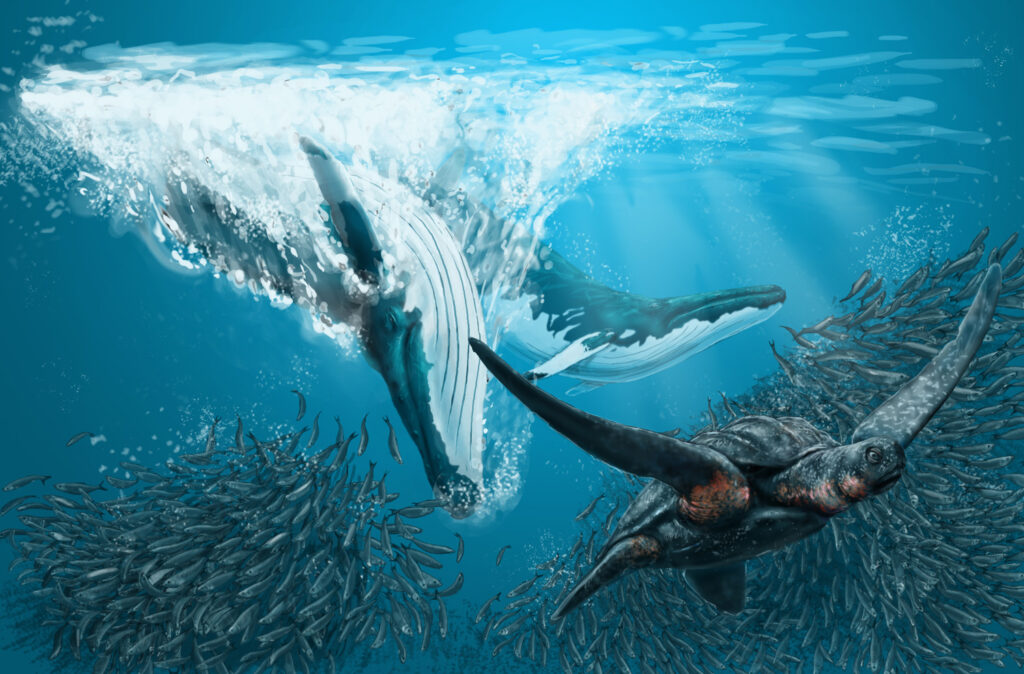
The major scientific discovery of the expedition was the recognition of a small area in the Westerschelde that yielded large and heavy blocks of sandstone containing a unique and exquisitely preserved marine mammal fauna. Dozens of whale skulls and skeletal elements preserved in more or less correct anatomical order. Almost all the recovered whale and dolphin species were hitherto unknown to scientists. Study of fossil single-celled organisms from the sediment has shown that the fossils are about 7.5 to 8.8 million years old.
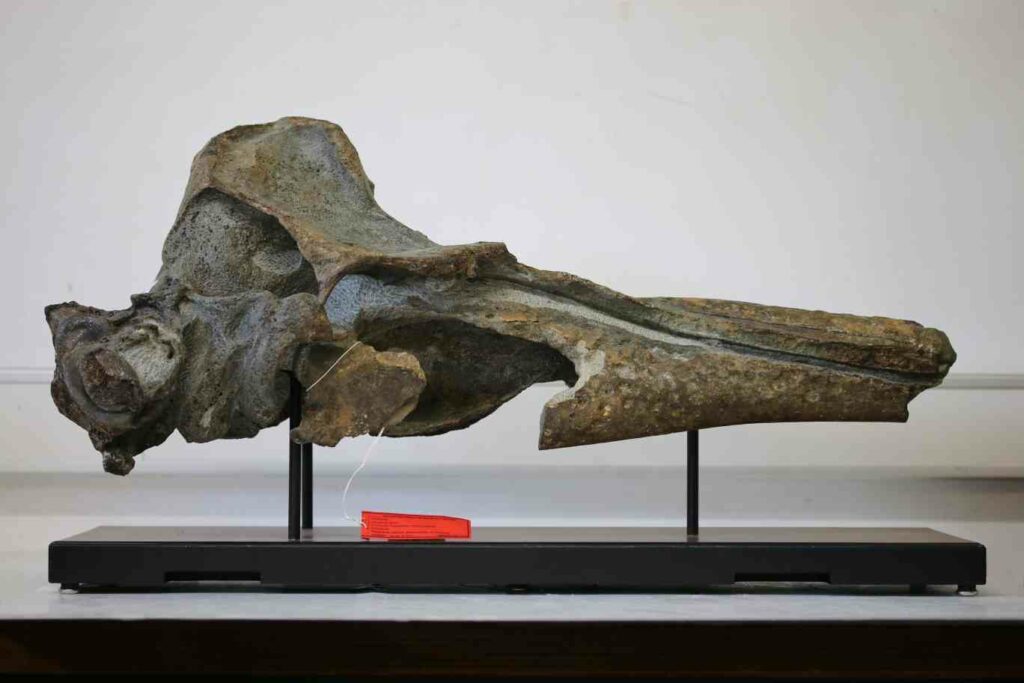
The highlights of the finds are the fossil skulls of beaked whales and the skull of the small but magnificent La Plata dolphin Scaldiporia vandokkumi (named after the captain who fished it). Other significant finds include holotypes of extinct whales Tranatocetus maregermanicum and Nehalaennia devossi, a giant sperm whale tooth, a large carapace of a giant sea turtle and vertebrae and teeth of the extinct shark Otodus megalodon. All of them donated to the Natural History Museum of Rotterdam.
